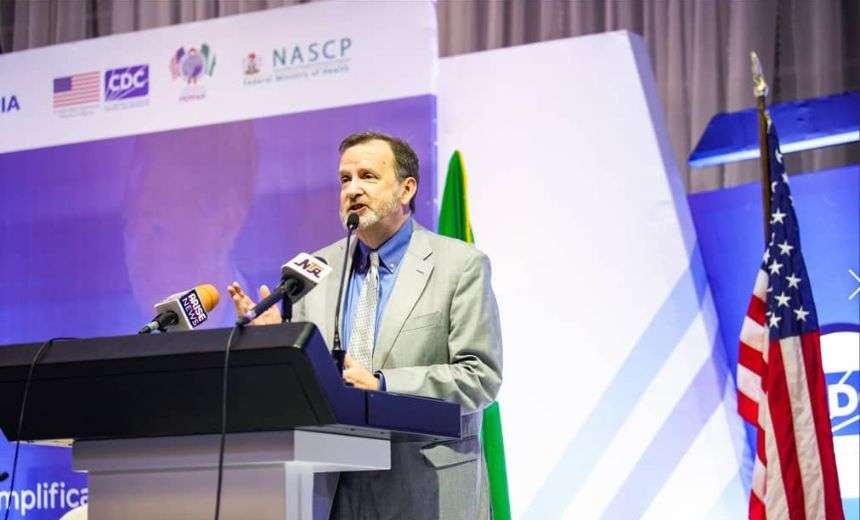The U.S. Centre for Disease Control and Prevention (U.S. CDC) has hosted the first day of its 5th round of stakeholders engagement meetings in Abuja.
The two-day event, themed “Strategic Pivoting Towards Programme Simplification and Sustainable Public Health Intervention,” had a focus on fosteing collaboration among key stakeholders.
On the first day, participants focused on laying the groundwork for HIV programme simplification, a critical step toward enhancing ownership and sustainability in public health interventions across Nigeria.
Federal and state officials, multilateral agencies, community stakeholders, and implementing partners engaged in dynamic discussions about strategies and progress related to health workforce optimization and integration.
The second day on Thursday focuses on reviewing progress of the state-led President’s Emergency Plan for AIDS Relief (PEPFAR) programme and proffering innovative models for health insurance at both national and state levels.
U.S. Ambassador to Nigeria, Richard Mills Jr, reaffirmed the U.S. Government’s commitment to working with all stakeholders and communities to achieve and sustain HIV epidemic control; prevent, detect, and respond to outbreaks; and improve health outcomes across the country.
He commended those working to provide relief to Nigerians living with HIV and emphasized the importance of continued partnership and collaboration.
The U.S. CDC Acting Country Director, Suzanne Theroux, highlighted Nigeria’s significant progress achieved through transformative partnerships, policies, and evidence-based public health programming.
She described the initiative known as ‘Getting the Data Right,’ which focuses on determining the number of people living with HIV who are receiving lifesaving antiretroviral treatment, as a bold effort that not only validates Nigeria’s HIV treatment coverage but also supports the goal of sustainable health outcomes.
The meeting is part of the U.S. CDC’s commitment to regularly reviewing and adapting programming to meet the evolving needs of the HIV response in Nigeria.
The next meeting is scheduled for April 2025.
(Editor: Oloyede Oworu)








